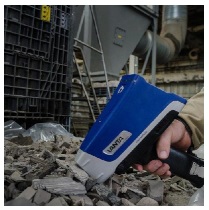MAXIMIZING PROFITS IN CATALYTIC CONVERTER RECYCLING: VALUING BASED ON ASSAY VS. CATALOGUE PRICE LISTS
POSTED BY PATY MAK
When it comes to dealing with a substantial collection of scrap catalytic converters, the pricing method you choose can impact your profits. Two common approaches used in the auto-catalysts recycling industry are pricing by assay and pricing per unit following a catalogue price list. In this article, we’ll examine these two methods and their respective advantages. By the end of this article, you will have a clear understanding of which strategy might be the most profitable for your specific circumstances.
Benefits of Assay-Based Valuations
Valuing a batch of scrap catalytic converters using assay-based methods, such as our Fast Settlement or Toll Refining services, offers several advantages:
Ensuring Fair Valuation
 Assaying involves a detailed analysis of the precious metals contained within a batch of auto-catalysts. This precise assessment guarantees that you receive a fair and accurate valuation for the entire batch.
Assaying involves a detailed analysis of the precious metals contained within a batch of auto-catalysts. This precise assessment guarantees that you receive a fair and accurate valuation for the entire batch.
Transparent and Credible
Providing a detailed report with the assay results is expected from the buyer, as transparency is paramount in the recycling industry. This is the stage where the trust between customers and buyers is built.
Potential for Negotiation
With assay-based pricing, there may be room for negotiation, especially if you have a large batch. You can always request Toll Refining Terms from the buyer to get a good understanding of them for possible negotiations.
Benefits of Catalogue Price List Valuations
Pricing your scrap catalytic converters based on a catalogue price list also comes with its set of advantages:
Quick and Convenient
Catalogue price lists provide a fast and straightforward method to determine the value of catalytic converters. This method is time-efficient, making it an excellent choice for those prioritizing speed.
Minimal Costs
You won't incur additional expenses for assay testing, making catalogue pricing a cost-effective option for small suppliers.
Ideal for Smaller Batches
If you have a small batch of converters and want to save time, the catalogue price list method is ideal for quick valuations.
FAQ
How is the assay process conducted?
Is assay pricing suitable for small batches?
Can I trust the results of the assay?
How do I find a reliable catalogue price list?
Can I negotiate with buyers when using a catalogue price list?
Is there a risk of undervaluing converters with catalogue pricing?
In the industry of scrap catalytic converters, selecting the right pricing method is crucial for optimizing profits. Assay-based pricing offers precision and the potential for maximizing returns on high-value auto-catalysts. On the other hand, catalogue price lists are quick to get an estimate, making it ideal for small batches.
Your choice should depend on your batch size, time constraints, and the importance of precision in your business. Regardless of the method you choose, transparency, trust, and credibility should remain central to your business transactions.
It's important to remember that the scrap metal industry is constantly evolving, and staying informed about market trends and pricing methods is vital for continued success in this field. Don't miss out on any updates, subscribe to our Eco Cat Newsletter.

























